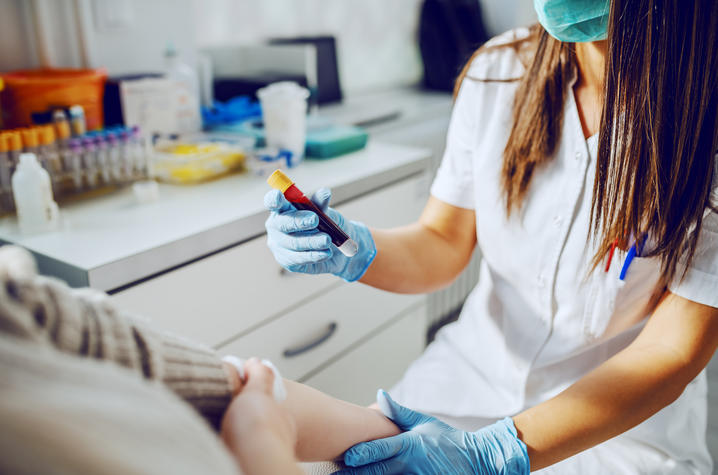Blood cancer awareness month: Learn to recognize the signs and symptoms

The University of Kentucky Public Relations & Strategic Communications Office provides a weekly health column available for use and reprint by news media. This week's column is by Reshma Ramlal, M.D., hematologist with the University of Kentucky Markey Cancer Center.
LEXINGTON, Ky. (Sept. 27, 2022) — Because many blood cancers can be highly treatable if caught early, there is an urgent need to raise public awareness of the signs and symptoms of the disease.
Blood cancers, which include leukemia, lymphoma and myeloma, form in the bone marrow where blood is made or in the lymphatic system, which fights infections. Affecting both children and adults, blood cancers account for almost 10% of new cancer cases in the U.S. each year.
While prognosis, or chance of recovery, depends on many factors including the type of blood cancer, survival rates have significantly improved. With modern treatment, patients with chronic myeloid leukemia can have close to normal life expectance. Elderly patients with acute leukemia, which was previously rapidly fatal, are now living one to three years from their diagnosis, and cellular therapy (involving a patient’s own cells or donor cells) is capable of offering a cure for some types of lymphomas and acute leukemias.
Symptoms
Because there is not yet a screening test for the early detection of blood cancers, people don’t typically know something is wrong until they develop symptoms. That’s why it’s especially important to learn to recognize the symptoms and be aware of any changes in your body.
People who have had prior chemotherapy or radiation or a prior toxic chemical exposure are at increased risk of developing blood cancers.
Common blood cancer symptoms include:
- fever
- drenching night sweats
- persistent fatigue and weakness
- bone or joint pain
- unexplained weight loss
- swollen lymph nodes, liver and spleen
- easy bruising or bleeding
If you are experiencing any of these symptoms, bring it to the attention of a health care professional right away. It could potentially save your life.
Treatment
Blood cancer treatment options vary by diagnosis as well as stage of the disease and include chemotherapy, targeted therapies, radiation therapy, immunotherapy, stem cell transplant and blood transfusion.
Part of the University of Kentucky Markey Cancer Center, the Hematology and Blood & Marrow Transplant and Cellular Therapy Program at UK HealthCare treats all blood related diseases, including blood cancers. There are also a variety of clinical trials and research studies underway at UK Markey Cancer Center that can give blood cancer patients additional treatment options and the best chance for survival.
As the state’s flagship, land-grant institution, the University of Kentucky exists to advance the Commonwealth. We do that by preparing the next generation of leaders — placing students at the heart of everything we do — and transforming the lives of Kentuckians through education, research and creative work, service and health care. We pride ourselves on being a catalyst for breakthroughs and a force for healing, a place where ingenuity unfolds. It's all made possible by our people — visionaries, disruptors and pioneers — who make up 200 academic programs, a $476.5 million research and development enterprise and a world-class medical center, all on one campus.




